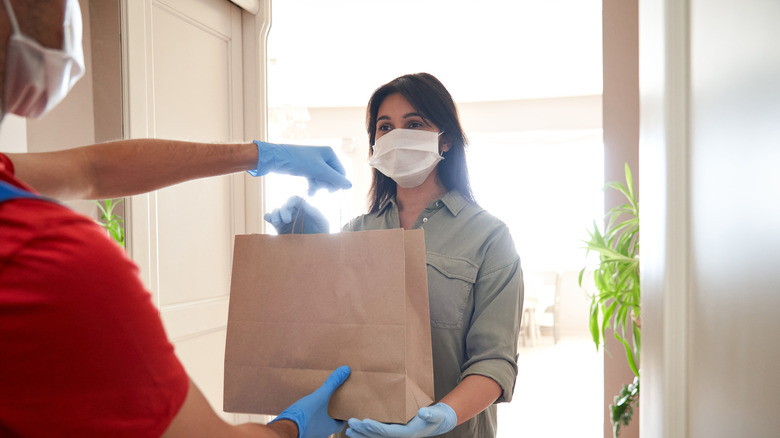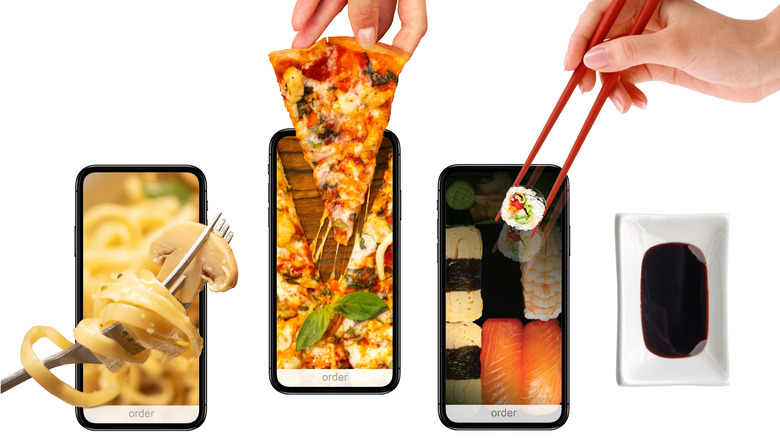Why Goldbelly Saw Massive Success During The Pandemic
Remember when you were a kid, imagining what the future would be like? Flying cars and hoverboards were the kind of thing you aged out of, eventually. Traffic in the sky would be a nightmare, first of all, and it only takes one hoverboard-related incident to render you incapable of walking without a cane or lead you to a career of criminal activity, á la Biff Tannen in "Back to the Future II." But one imaginary future technology we just can't seem to shake is the ability to beam yourself to another location instantaneously. There are no downsides! Visiting friends and family around the world at will, beaming yourself from a boardroom to a beach in under two seconds.
The pandemic saw a resurgence in beaming aspirations, and not just because it would have been nice to zap yourself over to the Eiffel Tower during a time when travel was off the table (and the lines were virtually non-existent). The pandemic not only kept people from their favorite places but from their favorite foods, too. Fancy a flaky croissant from that bakery you love in Portland, Oregon? Fat chance, seeing as you're stuck homeschooling your kids all the way over in Eugene. New York pizza from your one-bedroom apartment in Texas? Yeah, right. Enter Goldbelly, the modern-day version of a beaming service, and its timely gift of nationwide food delivery. According to CNBC, it was the pandemic that truly brought this baby start-up company into its happy (and successful) childhood years.
When you can't travel, but your food can
"The thing that Goldbelly has done really well," says Momofuku chef David Chang, in a testimonial on Goldbelly's website, "is that you can't get the whole restaurant. You're only going to get things that travel well or freeze well, and that's the smart thing. You can get King Salmon from the Pacific Northwest or Chris Bianco's frozen pizza and everything in between." That's because Goldbelly isn't a regular food delivery service, according to CNBC. Per its website, the service seeks to tap into "food memories, experiences, and desires." Goldbelly has been around for almost a decade, but the "food nostalgia" of the pandemic summer of 2020 led to the company's meteoric growth. "We were probably the fastest-growing company in the country [that] year," founder Joe Ariel tells CNBC.
As Chang points out, Goldbelly isn't some magical (read: beaming) service, much to our dismay; it's not going to deliver you any food you want, only the kind that can travel well. But if someone has the money and loves food, would they pick a local pizza delivery service when pizza from a world-renowned restaurant is just a few states (and clicks) away? Or when, as Bon Appétit writes, a storm ruins their BBQ in Martha's Vineyard, but they can still order an epic gumbo from a restaurant in New Orleans? Truly, some of us are already living in the future.

